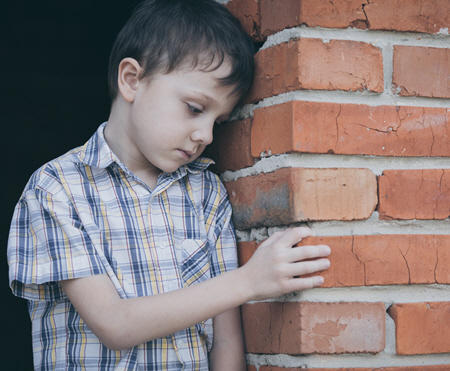 Something is not right.
Something is not right.
That once lovely child has changed, and as a parent, you are clueless about why.
He no longer seems happy, explodes into tantrums over a minor little thing, or is highly aggressive toward family and friends.
Perhaps your child is overly active, seems anxious when not with you or around others, or cannot communicate or express themselves.
As a parent, all you know is that this is not the happy child you once knew. You desperately want to learn the proper strokes to uncover your lovely child, but you also know that this is not something you can do alone.
Paint with a different brush.
“It took me four years to paint like Raphael, but a lifetime to paint like a child.”
– Pablo Picasso
Children express themselves differently from adults, and their inability to communicate what is bothering them can create stress for both their adult family and them.
As Picasso alludes to in his statement, there is a disconnect between how children and adults communicate and learn. Gaining insight and opening avenues of communication between you and your child is complex and hard to understand.
Play provides a means of communication that is natural to the child, and through play, avenues of communication and understanding become achievable. Learning how to communicate with your child is where play therapy can help.
 Seeing as the Child Sees
Seeing as the Child Sees
Children learn to communicate and gain self-expression through play. Play provides an outlet for a child to overcome stress, explore, and learn different roles in the family and society. Play is an essential component of a child’s normal development.
During play therapy, the child is the center of attention and interacts with the therapist in a familiar setting, thus allowing the child to feel at ease.
Play helps the therapist gain insight into what is bothering the child as they express their feelings and specific troubles. Through play, the therapist can gain the child’s trust, opening an avenue for communication.
Play therapy also allows the therapist to help the child learn more positive behavior and deal with troubling issues.
Play therapy has many applications.
Play therapy is a form of psychotherapy that provides children a safe, comfortable environment to express their thoughts and feelings using a non-directive approach.
This form of therapy helps children who have experienced and/or witnessed a stressful event, such as divorce, domestic violence, abuse, neglect, or a distressing change in their environment.
Play helps motivate the child to express feelings and communicate in a familiar language. Through play, the child learns to describe how they feel from trauma, family issues, and anxiety.
Through play, children can learn social skills and how to interact in a socially acceptable way, one less aggressive and angry. Play therapy also helps children learn to use language, reduce their anxiety, and become calmer.
Let’s find out what’s not right with your child.
Play is powerful in children, and we are here to help you and your child through the process. The process begins by meeting you and your child where you are.
Contact us today.

